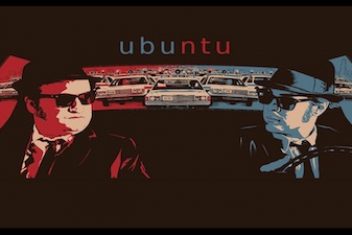The current version of the Linux distribution Ubuntu also comes with a new desktop image for the Raspberry Pi 4 and many package updates.
The Linux distributor Canonical has released the current version Ubuntu 20.10 alias Groovy Gorilla. The version does not receive long-term maintenance, but is only provided with updates for nine months. The main new features of the version are the usual and expected package updates.
One of the most fundamental changes to the system with the new version concerns the firewall backend. Here Canonical relies on the use of Nftables instead of the previously used iptables. Nftables has been part of the Linux kernel for more than six years, but its spread and use within Linux distributions has only grown slowly since then.
Read: How to set up a firewall on Ubuntu 18.04
With this step, Ubuntu basically follows the changes in the Debian system, with which Ubuntu still shares many packages and peculiarities. The current Debian 10 alias Buster already uses Nftables as a standard backend. While Debian recommends the use of Firewalld as a front end, Ubuntu continues to rely on its own implementation UFW.
Linux 5.8 as the kernel
The Linux kernel version 5.8 forms the basis of Groovy Gorilla . The new features compared to Ubuntu version 20.04 include support for USB4, an improved Btrfs raid, support for Power10 from IBM, ASPM support for certain PCIe devices and so-called thermal pressure tracking, among other things. which aims to improve CPU usage through better temperature control.
Read: How to Secure Your Linux System with 10 Proven Firewalls
The Gen11 (Ice Lake) and Gen12 GPUs (Tiger Lake) from Intel are now officially supported with the standard kernel from Ubuntu. Support for AMD’s upcoming Radeon GPUs aka Big Navi didn’t make it into the Ubuntu kernel. The upstream maintainers only entered these in Linux 5.9 , so they would first have to be backported to the Ubuntu kernel in version 5.8. It is currently unclear whether this will happen. The userspace drivers from the Mesa project in the current Ubuntu already support the upcoming AMD graphics cards, so only the Ubuntu kernel has to be updated to make them easier to use.
If you like the content, we would appreciate your support by buying us a coffee. Thank you so much for your visit and support.


